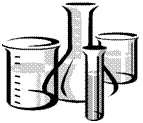Career Option in Chemical Engineering

Chemical engineering encompasses a range of specializations and is not restricted to 'chemical' products alone. Chemical engineers deal with large-scale conversion of raw materials or chemicals into more usable form and are employed in energy industries like petroleum and natural gas, plastics, petrochemicals, fertilizers, food processing, cements, soaps and detergents, perfumes, cosmetics, specialty chemicals like coatings, paints, pigments, and inks, production of medicines, pulp and paper, polymers, biotechnology, and environmental health and safety industries.
Undergraduate Degree
- Eligibility:
U.G degree in Chemical Engineering is offered by engineering colleges for students who have passed higher secondary (+2).
- Education Details:
The core curriculum of a chemical engineering program, like other engineering programs, serves dual purposes: it (a) provides technical information and, (b) instills a thought process unique to the engineering disciplines. The sample curriculum shown below lists key topics covered by a typical university offering chemical engineering bachelor’s program (this specific listing is referred from the Department of Chemical Engineering at Virginia Tech University).
First Year: General Chemistry (with lab); Calculus I and II; Introduction to engineering; English; Algebra; Statistics; Vector Geometry; Electives.
Second Year: Organic Chemistry; Multi variable Calculus; Mass and Energy Balances; Physics; Statistics; Ordinary Partial Differential Equations; Physical Chemistry; Separation Processes; Mechanics of Deformable Bodies; Elective.
Third Year: Transport Operations; Thermodynamics; Process, Measurements and Controls; Physical Chemistry (with lab); Chemical Process Modeling; Chemical Reactor Analysis and Design; Elective Summer: Chemical Engineering Lab.
Fourth Year: Process and Plant Design; Separation Processes; Process Materials; Elective.
Electives:
Employers usually look to hire candidates who have demonstrated success both within their core program and in a wide range of elective courses. Focus on becoming as well-rounded as possible by taking a variety of humanities courses, and try to include communication and business courses whenever possible.
Those interested in a career in Chemical Engineering should consider reviewing engineering programs that are accredited by ABET Inc. ABET accreditation in the US is based on an evaluation of an engineering program's student achievement, program improvement, faculty, curricular content, facilities, and institutional commitment.
For more information on colleges visit www.StudyGuideIndia.com
Industries:
A variety of industries employ chemical engineers representing a diverse range of products, employers, and services (see Section A: Field Description). Examples of companies that recruit chemical engineers include: Reliance, Indian Oil Corporation, Hindustan Level Limited, Dr. Reddy's Laboratories, Ranbaxy, Dow Chemical Company, and Asian Paints.
Job roles:
Job roles depend on the educational qualification, experience, and demonstration of inter-personal skills like leadership and teamwork. The initial job roles for a chemical engineer for different educational qualifications are:
- Chemical plant operator (Diploma): Responsibilities include ensuring safe and steady operation of chemical plant, monitoring performance of key process equipment in the chemical plant, and performing maintenance. Promotions for this role include senior operator, controls operator, foreman, supervisor, and superintendent.
- Chemical engineer (Bachelor’s Degree): Responsibilities include monitoring plant operations, assessing plant and equipment performance, identifying ways to improve efficiency, and coordinating changes in equipment or procedures. Promotions for this role include senior chemical engineer, supervisor, and project manager.
- Scientist (Master’s Degree and PhD): Responsibilities include developing new processes, identifying opportunities to improve existing processes, developing new material, and finding new applications. Promotions for this role include senior scientist, head of department, and research manager. Many also pursue career in teaching and conducting research in university
For beginners around Rs.10, 000 to Rs.17, 000 along with other incentives.
Indian Institute of Chemical Engineers (http://www.iiche.org.in/) is a confluence of streams of chemical engineering professionals in India from academia, research institute and industry. It provides an appropriate forum for joint endeavors of chemical engineering and allied sciences, to work hand-in-hand for the betterment of humanity.
American Institute of Chemical Engineers (www.aiche.org) AIChE is the world's leading organization for chemical engineering professionals, with more than 40,000 members from 93 countries. It provides forums for AIChE's technical meetings, and awards and recognition to outstanding chemical engineers in their area of expertise.
 Add College
Add College Login
Login